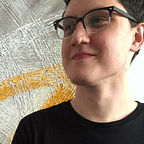Why You Should Watch the Movie ‘All My Friends Hate Me’ (2021)
The 2021 film All My Friends Hate Me is one of the few movies in recent years I watched multiple times. It’s part of a growing trend we’ve all seen in horror movies in the covid-era: social anxiety horror. I’m putting Airbnb catastrophe stories like Barbarian, The Rental, Superhost, and so on in this category, but also Zoom or streaming horror flicks like Host, Deadstream, and Dashcam (modern found footage flicks), and even potential outliers like Pearl (set in the Spanish flu pandemic), Nanny (which is great, if you haven’t seen it), and Nope, since they all have to do with anxiety about our (newfound?) inability to connect with other people on a deep level. All of these movies are about a fear of conversation, of seeing and being seen in real life. (A notable exception to this trend is the 2022 horror movie Smile. Perhaps this is why this film felt like a remnant from a prior era of horror movies, not in conversation with other modern filmmakers.)
But my favorite example in this new genre is All My Friends Hate Me. It could be called Gaslighting: The Movie. It’s about a 30-something bland, British, upper-class white guy reuniting with old college buddies he hasn’t seen in years for his birthday weekend. Immediately, however, even on the drive over to the house where they’ll all be staying, it seems as if everyone he comes across is fucking with him, undermining his integrity, secretly asking him if he’s a good person or if, deep down, he knows he’s an absolute piece of shit. I get the same feeling of glee watching this film’s absolutely brutal awkwardness from something like Stanley Kubrick’s Eyes Wide Shut, in which every single character seems to want to use and belittle Tom Cruise, who insists in response that he is merely a righteous doctor entitled to a bit of fun.
Like Kubrick’s masterpiece, All My Friends wallows in the patheticness of its main character, Pete. It laughs at his meager attempts to assert his boundaries, to tell his old friends that he is a new, more socially conscious version of himself. Every act of self-differentiation is just a bit too desperate for his peers’ approval and attention, and, of course, everyone immediately senses it, as old friends often do. The tension beneath the surface threatens to boil over in every conversation. Unless, of course, it’s all in Pete’s head and everyone else really is just having a great time with their oldest mates. He projects his discomfort primarily onto a newcomer named Harry who tags along from a local pub. Harry’s the life of the party but Pete keeps sensing something ominous under his needling remarks and infuriating unselfconsciousness. A perfect expression of the movie’s brilliance is when Pete, sobbing a bit but also mildly smiling, says to his girlfriend in a moment of absolute vulnerability, “he’s ruining my birthday.” I fucking love it.
What makes this movie an unpretentious masterpiece is that it sticks to its central conceit (whereas a similar recent horror film called Speak No Evil abandons what makes it interesting in the last act). The main thing about gaslighting is that the person being gaslit doesn’t know what is real, or even if they’re really being gaslit (or if it’s all in their head). The movie, brilliantly, gaslights you, the audience, by always undermining what you think you know, perfectly balancing revelatory “clues” with deflating explanations. So ultimately, even though its comedic temperament is ruthless, the movie has a twisted compassion for the main character (and for its audience).
We have all felt like we need to prove we’re not bad people. The movie doesn’t declare that we are, in fact, bad people for having this need. It does not become a furious dictator or abusive parent in its critique of what is wrong with people. It subverts the binary of absolute right and wrong by asking us what it would mean to “know” we are good, deep down. Pete wants acceptance so much that his sense of humor is dead and all social interactions — even friendly ones — stop making sense. Who couldn’t relate?
